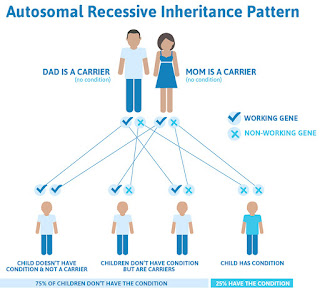Genetic Basis for Congenital Heart Disease: Revisited: A Scientific Statement From the American Heart Association
7 Reasons Most People Get Liver Cancer
Liver cancer remains one of the most aggressive forms of cancer, often detected only in later stages when treatment options become limited. Understanding the primary risk factors helps individuals make informed decisions about their health and take preventive measures before problems develop.
Chronic viral hepatitisHepatitis B and C infections represent the leading causes of liver cancer worldwide. These viruses gradually damage liver tissue through chronic inflammation, eventually leading to cirrhosis. This scarring process creates an environment where cancer cells can develop and flourish.
The risk increases significantly for individuals who carry these viruses long-term without treatment. While Hepatitis B has a preventive vaccine, Hepatitis C lacks one but responds to antiviral medications. Early detection through regular screening proves crucial for preventing cancer development.
Alcohol consumption patternsExcessive alcohol use consistently ranks among the primary triggers for liver cancer. The liver, responsible for processing alcohol, sustains damage from prolonged exposure to high amounts of alcoholic beverages. Over time, this leads to cirrhosis, creating an environment where cancer cells can develop.
The risk increases proportionally with the amount and duration of alcohol consumption. Regular heavy drinking dramatically raises the likelihood of developing liver cancer, especially when combined with other risk factors like viral hepatitis or obesity.
Fatty liver diseaseNon-alcoholic fatty liver disease (NAFLD) has emerged as a growing concern in liver cancer development. This condition, often linked to obesity and poor dietary habits, causes fat accumulation in liver cells. As the disease progresses, it can lead to inflammation and scarring, significantly increasing cancer risk.
The rise in obesity rates worldwide has contributed to increased NAFLD cases, making it an increasingly common pathway to liver cancer. Proper diet and exercise remain crucial for preventing this condition.
Tobacco use impactSmoking affects more than just the lungs; it significantly increases liver cancer risk. The liver must process numerous toxins from cigarette smoke, leading to cellular damage over time. This constant exposure to harmful chemicals creates oxidative stress and inflammation, potentially triggering cancerous changes.
Former smokers show decreased risk compared to current smokers, demonstrating the benefits of quitting. However, the damage accumulates over years of smoking, making early cessation crucial for prevention.
Environmental exposureCertain environmental toxins directly affect liver health and cancer risk. Aflatoxins, produced by molds on improperly stored foods, pose a particular threat. Industrial chemicals, including vinyl chloride and polychlorinated biphenyls (PCBs), also increase cancer risk through repeated exposure.
Proper food storage and workplace safety measures help minimize exposure to these harmful substances. Regular monitoring of environmental conditions becomes essential in high-risk areas.
Genetic predispositionFamily history and inherited conditions play significant roles in liver cancer development. Genetic disorders like hemochromatosis, which causes excessive iron accumulation, can damage liver tissue over time. Understanding family medical history helps identify individuals who need closer monitoring.
While genetic factors cannot be changed, awareness leads to better screening practices and earlier intervention when problems arise. Genetic counseling provides valuable insights for those with inherited risk factors.
Metabolic disordersDiabetes and metabolic syndrome significantly increase liver cancer risk through multiple mechanisms. High blood sugar levels, insulin resistance, and associated inflammation create conditions favorable for cancer development. These metabolic disruptions often coincide with other risk factors, compounding the danger.
Managing diabetes and related conditions through medication, diet, and lifestyle changes helps reduce cancer risk. Regular monitoring of metabolic health indicators enables early intervention when problems develop.
Prevention strategiesUnderstanding these risk factors enables better prevention through:
While liver cancer poses serious health risks, understanding and addressing these common causes can significantly reduce individual risk. Regular medical check-ups, healthy lifestyle choices, and awareness of environmental factors play crucial roles in prevention.
This story was created using AI technology.
Liver Diseases Articles From Across Nature Portfolio
Alcohol-free and low-strength drinks: friend or foe?Consumption of no and low-alcohol (NoLo) beverages is now commonplace in modern society. However, the debate surrounding the relative risks and benefits of these products is nuanced and evolving, particularly in patients with a history of alcohol use disorder or alcohol-related liver disease. This Comment summarizes the major individual and public health implications of NoLo drinks in order to help inform our interactions with these patient groups.
New Study Explores The Role Of BMI In Disease Risk
Just a moment...This request seems a bit unusual, so we need to confirm that you're human. Please press and hold the button until it turns completely green. Thank you for your cooperation!
Press and HoldPress and hold the button
If you believe this is an error, please contact our support team.
167.71.87.121 : 4ed76059-5137-472b-80a0-b22241be


Comments
Post a Comment